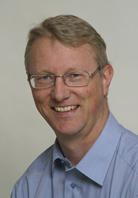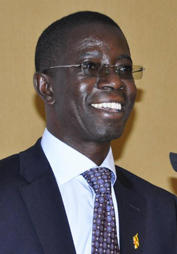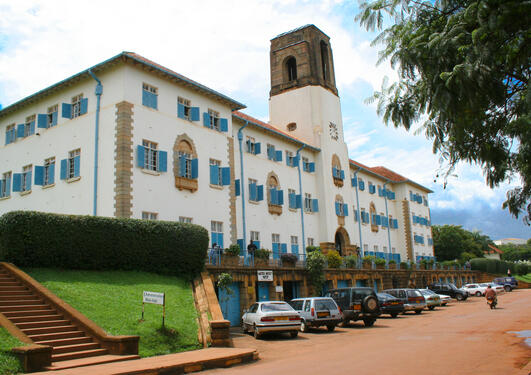Makerere-coordination changes hands
Few people at the University of Bergen knows Makerere University in Uganda better than Thelma Kraft. She has facilitated collaboration and capacity building between UiB and "the Harvard of Africa" for fourteen years.

Main content
Thelma Kraft retired last month and handed over the responsibilities as administrative coordinator for the Makerere cooperation to Kristin Svartveit at UiB Global.
“There is a wonderful openness at Makerere. When you say you come from Bergen, it really means something. One experiences great confidence and a kind of contact even before one gets to know each other,” says Thelma Kraft.
The good ties between UiB and Makerere have involved research cooperation and student exchange at most faculties, in addition to administrative collaboration and competence building. In recent years, cooperation has grown in the direction of joint doctoral degrees and various projects to build capacity. An agreement on joint degrees will probably be signed before the summer.
Bergen-office
The groundwork has been laid for UiB researchers and students with ambitions in East Africa. Quality research is a priority at Makerere, especially in medicine, science, social sciences and ICT.
“Researchers in need of a partner in East Africa should look to Makerere. Cooperation in the South may involve challenges and often depend on individuals to a larger degree than in Bergen. But when Makerere has partnered in a project, they will deliver on everything from research to reporting,” says Thelma.
The University of Bergen has an office with support staff and a car at Makerere available to visitors. The secretary, Winnie Ndagire, can assist in seeking partners for new projects or provide administrative support for ongoing activities. The local coordinator of UiB’s Nile Basin Research Programme, Dr. Margaret Kyakuwa, shares facilities with the Bergen-office.
Academic coordinator for the collaboration at Makerere is Professor Edward Kirumira. He is an invaluable resource when exploring Makerere’s research milieus. Professor Thorkild Tylleskär is his counterpart at UiB.
“I think one reason why the collaboration has been so special is that we have always gone in as equal partner and have challenged them to identify their own needs and propose their own ideas.”
But Thelma Kraft thinks it is time to revitalize the framework agreement both at UiB and at Makerere in order to expand the collaboration. She encourages visiting researchers and teaching staff from UiB to give guest lectures or small courses to help spur academic curiosity and facilitate discussions.
From small beginnings in the 1980s
UiB collaboration with Makerere got its infancy with the visit of professor of physics Endre Lillethun in 1988. The" Harvard of Africa" had been hard hit during the misrule of Idi Amin.
“He found a greatly reduced staff struggling under poor conditions with very little equipment. Empty laboratory halls lacked even electricity wires on the walls. They had been stolen to be sold for the copper,” says Thelma.
Lillethun immediately began to investigate opportunities for collaboration and received support for the project Basic Sciences for Technological Development from Norad’s NUFU programme in 1990. The first five years consisted mainly of infrastructure build-up. Makerere’s Livingston Luboobi and UiB’s Andreas Steigen coordinated the project.
With the Framework Agreement in 1999 came the need for proper administrative support. Thelma Kraft got the task in 2001. She was then executive officer of the Centre for Environmental and Resource Studies.
“The research collaboration could not start until the necessary infrastructure and training of technical staff was in place. I monitored the development of infrastructure and introduced administrative systems,” explains Thelma.
Since then she has followed the developments at Makerere and facilitated cooperation between the two institutions. The six NORHED projects, in which UiB is a partner, has been the focus for the last couple of years.
Student exchange
An agreement on student exchange was signed with the Division of Student Affairs in 2005, but he first three students travelled down already in 2003. The students have mainly come from the field geography and development studies at the Faculty of Social Sciences and from ICT and biology.
A separate agreement on student exchange between the medical faculties at Makerere and UiB was signed the following year. Over 60 medical students have so far had six weeks of practice at Mulago Hospital. There are currently nine UiB students at the hospital.
At one time there were 21 UiB students at Makerere. Since the introduction of quality reform in Norway ten years ago, about 50 undergraduates have spent one or two semesters at Makerere. The number has dropped sharply in recent years.
A decade ago, Makerere experienced a sharp increase in student numbers. Teaching responsibilities were increased and evening classes introduced. This happened at a time when several new universities opened in Uganda and competent teaching staff was scares.
“It was impossible to both handle the increased burden of teaching and attend to own research. Then we had lengthy strikes due to lack of salaries. This had of course an impact on academic quality and obviously affected UiB students who travelled to Makerere. It naturally caused concern both among students and the faculties at UiB.”
A first step to reverse this trend, she thinks, should be to clarify the value of credits at Makerere to our European Credit Transfer System (ECTS). “Credits from Makerere need to be easily converted to the Bologna standard.”
“Time doesn’t go in Uganda. It comes. Meetings never start exactly on time, but if something is promised at Makere is will always be provided. Sometimes it only takes a little longer," says Thelma.
"A wise Ugandan friend told me once that "if you wish to sit in the shade when you get old, you must plant the tree while you are young".


